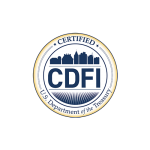Is it better to pay off debt or save for retirement?

Truth of the matter, this topic is a highly personal decision and depends entirely on your individual situation. There is no one-size-fits-all approach to saving for retirement while paying off debt. The answer lies between your individual financial situation and your emotional relationship to money. However, here are a few guidelines you may find useful.
Paying off debt, while saving for other important goals like a down payment or retirement, is one of the biggest challenges that many people face. The hard fact is that the average American adult has $29,800 of debt, (excluding mortgages) and 15% of Americans believe they’ll never be debt-free.
Additionally, retirement is also a challenge for many Americans. A recent TD Ameritrade report found that nearly two-thirds of 40-somethings have less than $100,000 in retirement savings and 28% of those in their sixties have less than $50,000.
Given these numbers, it’s more important than ever that people balance paying off debt with saving for retirement. Otherwise, it’s likely that you could find yourself in a position where you can’t afford to retire.
When it is best to pay off debt first?
If you have high-Interest loans. If you are carrying high-interest debt (generally anything above 9%), it’s worth tackling that as quickly as possible. The interest rate on credit cards often exceeds 20%, as does the rate on high-interest personal loans. This should be your first priority before you increase retirement contributions.
It’s also important to note that debt is a highly emotional topic for many people. If your debt is a serious emotional burden for you, it might make sense to prioritize it, even if it’s not the optimal financial decision.
When is it best to save for retirement first?
There are definitely times when it’s best to prioritize paying off debt, but there are many other situations when you can redirect some of that money toward retirement savings instead. Here are a few situations when you can save for retirement while you’re still in debt:
Your employer offers a 401k match. About 75% of employers that offer a 401k plan also offer an employer match. If a 401k match is available to you, you don’t want to pass it up. It’s literally free money from your employer, and it can add up considerably over time. If you’re still paying off debt, it’s worth contributing at least up to your employer match, which often equals a few percent of your salary.
You have low-interest debt. While paying interest on debt can feel burdensome, the payoff may be worth it if your money can earn more in the market. According to the Securities and Exchange Commission, the stock market has an average annual return of 10%. When you account for inflation, it’s more like 7%. Either way, the average returns are higher than the interest rates many people pay on their mortgages, student loans, and car loans.
How do I decide which is best for me?
As always, the truth is somewhere in the middle, and where you fit in that middle ground depends on your circumstances. Follow the following steps to figure out the right course of action for yourself.
Analyze Your Debt
Most people have a series of debt: college loans, car payments, a few credit cards, and maybe a mortgage. Begin by listing your balances, your minimum monthly payments, and, most importantly, the interest rates you’re paying on each balance.
Any debts that require you to pay double-digit rates, such as credit card balances, should be addressed first. Revolving credit card debt is a trap for most consumers. Focus on paying off those loans first. Then you can move to target your lower-interest debt.
The more wiggle room you have in your budget, the more quickly you can pay down your debt while still putting money toward retirement each month. Take advantage of the many free online money management tools, they can help you discover where your money is going. Then you can identify areas where you can save to have more money to save and pay off debt.
Build an Emergency Fund
Not planning for emergencies can be a costly mistake. The car breaks down, your raised rent goes up, or you lose your income. Things happen and you need to be prepared. Paying for an emergency with an expensive credit card or a personal loan can wipe out a year’s worth of savings and put you further into debt. Work on building a good financial backup plan even as you pay down your debt.
Most financial planners agree that your first priority is to save have three to six months of living expenses. Keep this money liquid and close at hand, like in a high-interest savings account. If you are currently building an emergency fund, consider making your minimum debt payments and putting extra money toward an emergency fund.
Maximize Your 401(k) Match
If your company encourages retirement savings through some kind of matching arrangement, like a 401(k) match, don’t miss out on capturing that free money.
If your employer pays you 50 cents for every $1 you put away up to 6% of your salary, that’s a 50% return right away. With that level of high return, it only makes sense to prioritize it over almost all non-mandatory debt repayment.
Make a Debt Repayment Plan
Once you’re meeting your minimal debt obligations, have built up your emergency savings, and have maximized the free money you get to save for retirement, it makes sense to take what’s leftover each month and consider a blend of debt payments and retirement investments.
Set Specific Goals
To reach your goal of reducing debt and saving for retirement, it’s best to have a working plan. Take time to write down a specific plan on how much you will contribute to your financial goals each month. Keep track of your progress, remember what gets measured gets improved.
With this in mind, you can organize your spending and set a monthly target. Set your retirement goals and ensure you’re on track to meet them. Navigate your progress toward paying down debt and begin to develop a disciplined approach to managing your finances.
Summary
When deciding to apply your money to reducing debt or saving for retirement, it is a smart move to pay off the highest-interest, highest-balance debts first and then to invest once you’re left with debts that will cost less in interest than market performance will earn. Regardless of the remaining balances on your mortgage, student loan, and auto loan debts, saving for retirement should be a line item on your budget just like your utilities and groceries. It’s important to get an early start, you will benefit in the long run.






